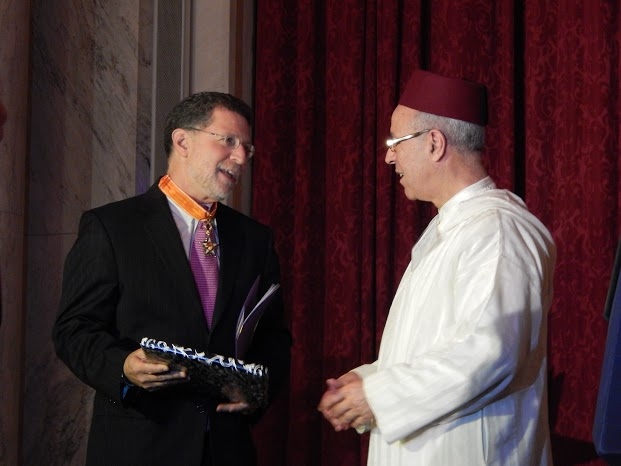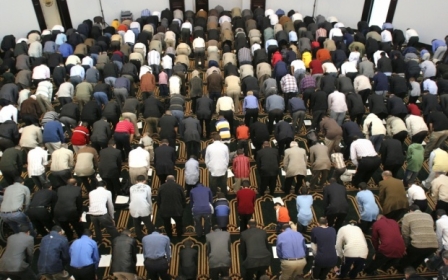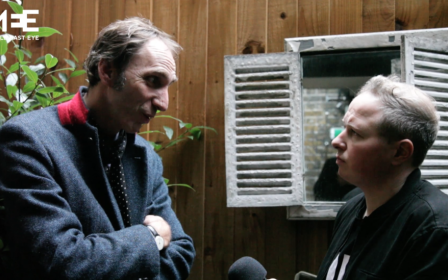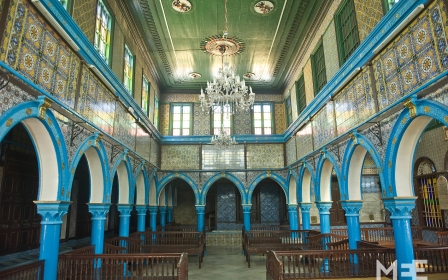In the restoration of Moroccan Jewish cemeteries, interfaith calls for peace

WASHINGTON, DC - Days after the attacks in Paris, an interfaith celebration of the restoration of Jewish cemeteries in predominantly Muslim Morocco emphasised the need for respect, tolerance, and appreciation of the world’s religions.
Co-hosted by the American Jewish Committee (AJC) and the Council of the Jewish Communities of Morocco (CJCM) and held on Capitol Hill in Washington, the event marked the restoration of 167 Jewish graveyards, and 12,600 graves across 40 provinces. The majority of the sites are located in the areas of the Souss-Massa-Draa, Marrakesh-Tensift-Al Haouz, and Meknes-Tafilalet.
The rehabilitation programme, dubbed “Houses of Life,” began in 2010 under the purview of the Moroccan government.
Serge Berdugo, president of the Council of Jewish Communities of Morocco, called the restoration “a very sacred mission”. He noted that in a world which frequently sees conflict between Muslims and Jews, the project offers hope. “May we go on working our way peacefully in the memories of all the deceased,” he said. “May they rest in peace.”
Before the founding of Israel in 1948, there were more than 200,000 Jews in the country, giving Morocco the largest Jewish community in the Muslim world, but fewer than 2,500 still live there today. A wave of attacks and economic boycotts of Jewish businesses helped drive thousands of Morrocco's Jews to emigrate mostly to Israel.
During the course of the restorations, crews demolished 32,480 feet of old walls, built 137,795 feet of new fences/walls, weeded and cleared 2.1 million square feet, installed 159 new doors, laid 534,966 square feet of pavement, rehabilitated damaged mausoleums, and cleaned and restored all graves.
Until the programme began, many of Morocco’s Jewish cemeteries were in danger of absolute decay. Gravestones had eroded, walkways were treacherous, and boundaries were unclear.
And boundaries were indeed crossed. In a book outlining the project steps, “Rehabilitation Of the Jewish Cemeteries of Morocco,” published by the Houses of Life is the admission: “Problems were encountered because of breaches of previously established rules. Thus, some work was begun before approval by CJCM; other major renovations that did not match the priorities set out were performed without notice to the CJCM. These shortcomings led in some cases to litigation and resulted in additional costs and some loss of potential property adjacent to the cemeteries.”
Challenges remain, including work on cemetery sites without graves that lack rights or titles. All Jewish cemetery sites remain to be registered with the Moroccan Jewish Funerary Patrimony, a process that is expected to be drawn out, but once completed, will designate the cemeteries as inviolable religious sites.
The records will ultimately be digitised for research purposes for both academics and family members, and a database created for maintaining a living record of all the deceased, as well as provide for deciphering the texts on the graves.
“The rehabilitation of the Jewish cemeteries in Morocco is a testimony that Muslims and Jews can coexist and live together in peace and harmony,” said Morocco’s ambassador to the US Rachad Bouhlal. “A testimony that this is possible in a world that is being threatened by extremism and radicalism, hatred, anti-Semitism and Islamophobia.”
The ceremony included recognitions to Rabbi M Bruce Lustig, Senior Rabbi of the Washington Hebrew Congregation; Imam Talib M Shareef, president of The Nation's Mosque, Masjid Muhammad and Cardinal Theodore McCarrick, the former archbishop of the Washington, DC diocese, and praise for their efforts to bridge religious divides.
Senator Cardin (D-MD), ranking member of the Senate Committee on Foreign Relations, said of the awardees: “They are three great leaders of three great religions that understand that the three great religions have much more in common than divides. Each respects tolerance of people of faith, and understands that together we are stronger.”
“As Americans, we pride ourselves on the inclusion of all people, regardless of race, religion or even background. It’s not always easy. As we mourn the terrible attacks in Paris, we’re hearing calls to seal our borders against refugees. Even some presidential candidates are calling for closing mosques across the country,” Representative André Carson (D-IN) a member of the Permanent Select Committee on Intelligence, said.
“Tonight, we’ve all come together because we know this is the wrong path. Humanity cannot continue to grow in distrust and fear. We must learn from countries like Morocco to understand each other and respect our differences.”
This project is “proof that peace is possible in a world that is being threatened by extremism.
“None of us can come into our spiritual family until we first come into our human family,” said Imam Talib M Shareef, president and imam of the Nation’s Mosque, Masjid Muhammad, and a former chief master sergeant of the United States Air Force.
“We who work for harmony should be not passive. There is much more harmony in this world than war. There is much more love in this world than hatred. We begin to die the day we stop acting on things that matter to us.”
Middle East Eye propose une couverture et une analyse indépendantes et incomparables du Moyen-Orient, de l’Afrique du Nord et d’autres régions du monde. Pour en savoir plus sur la reprise de ce contenu et les frais qui s’appliquent, veuillez remplir ce formulaire [en anglais]. Pour en savoir plus sur MEE, cliquez ici [en anglais].




